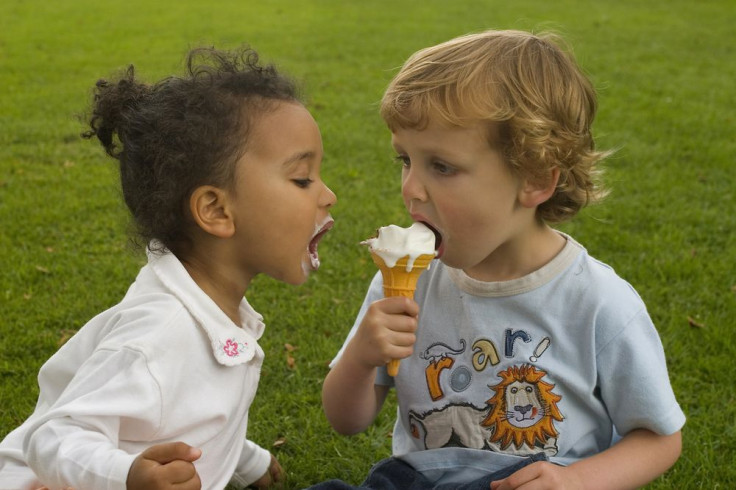Sharing Is Caring, Sometimes: Children Lacking Sympathy May Have Different Motivations

Sharing is a virtue most parents strive to instill in their children, but a recent study from the British Psychological Society has revealed that not all school kids have the same motivation behind their altruistic behavior. For some, sharing is a natural extension of a sympathetic disposition, while for others the decision to share is driven by a respect for another’s moral standing.
Antonio Zuffiano and his team from the University of Toronto set out to find what drives our desire to share. The behavior is often associated with kind and sympathetic personalities, but research has shown that even those who lack these traits are still capable of altruistic behavior. In order to find the root of sharing, the team investigated behavior during the earliest stages: childhood. In the study, two groups, one of children aged 7 years old and another of 15 years old, were asked to participate in an activity known as “the dictator game,” the press release reported.
In the game, the children were given six chocolate coins. They were then told stories about hypothetical children of a similar age and gender — a part of the game devised to showcase these made-up children’s personalities. For example, the children in the stories were portrayed as being fair, prosocial, socially inclusive, or non-aggressive toward others. The children involved in the study were also given questionnaires to measure both their overall ability to feel sympathy and the amount of respect they felt toward the hypothetical children. They were then told that they could choose whether or not they wanted to share their coins with the other hypothetical children.
Results showed that children who were less sympathetic were more likely to share their gold coins with the hypothetical children when they expressed a respect for their moral choices.
According to Zuffiano, "the present findings suggest that unique, positive feelings of respect toward moral others may compensate for a lack of sympathetic concern when sharing resources."
Sharing is described as an altruistic behavior, or a behavior which benefits another with no gain for oneself. Many evolutionary scientists believe that altruisms were necessary for the evolution of modern man and that those less inclined to share with neighbors died off due to natural selection.
As humans evolved into more complex beings, we came to form societies. (Societies function best through the cooperation of their members.) Humans then grew to become more “group minded,” Psychology Today reported. As a result, those who were unable to contribute to a community were unable to remain and thus less likely to survive and pass on their genes.
So although many may possess this important ability to share, the motivation behind it differs among each individual.
Source: Zuffiano A, Colasante T, Peplak J, Malti T. Sharing without Caring? Respect for Moral Others Compensates for Low Sympathy in Children's Sharing. British Journal of Developmental Psychology. 2015.



























